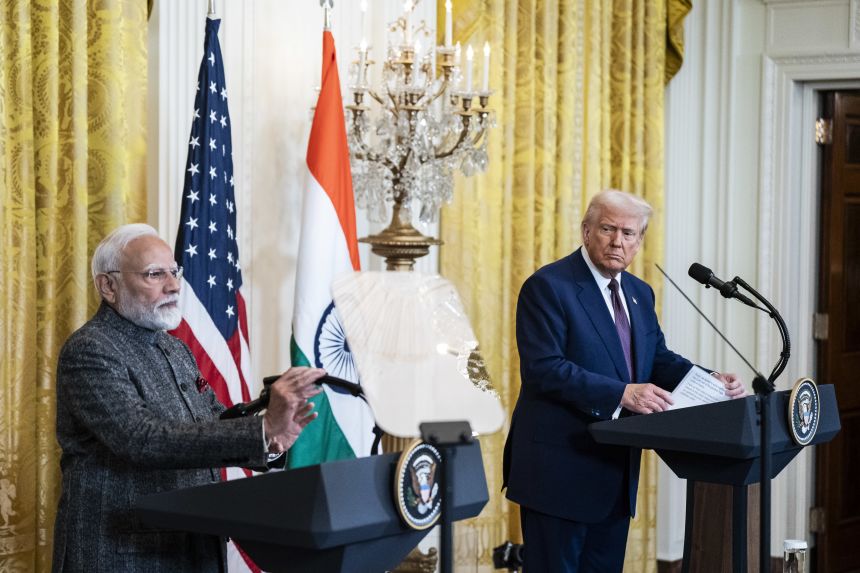India Denies Trump’s Claim Over Russian Oil Agreement
Tensions between Washington and New Delhi flared after U.S. President Donald Trump claimed that Indian Prime Minister Narendra Modi had agreed to halt purchases of Russian oil. The statement quickly drew skepticism from India’s Ministry of External Affairs, which said it was “not aware of any such conversation or assurance.” This issue with India’s Russian oil imports highlights Trump’s influence on diplomatic narratives. Energy diplomacy has become a fault line in U.S.-India relations, as both nations balance strategic ambitions with economic necessity. Consequently, the situation regarding India’s Russian oil imports underlines Trump’s significant impact on these narratives.
India’s oil imports from Russia have surged since the invasion of Ukraine, making Moscow its largest crude supplier. According to recent data from the International Energy Agency (IEA), India now sources over one-third of its imported oil from Russia—up from less than 2% before the conflict. Analysts say Trump’s assertion may reflect political signaling rather than concrete policy progress. For New Delhi, the priority remains maintaining a diversified energy portfolio that protects its economy from global price fluctuations and supply disruptions related to Russia and Trump’s policies.
Energy experts note that replacing Russian crude is not a short-term option for India. India’s oil strategy relies heavily on these imports, and its refineries are optimized for Russian blends. Alternative sources like Saudi Arabia and the United States cannot immediately cover the gap without triggering price inflation. Therefore, India Russian oil imports under Trump policies remain a focal point for diplomatic discussion.
Economic Stakes: Tariffs, Trade Pressure, and Political Optics
The friction over oil imports comes on the heels of new U.S. tariffs targeting Indian energy and manufacturing sectors. Trump’s recent decision to impose a 25% tariff increase on Indian goods—specifically linked to continued Russian oil purchases—has raised concerns within India’s business community. According to the U.S. Department of Energy (DOE), such tariffs could disrupt supply chains and elevate domestic fuel costs in both nations.
India’s Foreign Ministry reiterated its long-standing stance that its energy policies are guided by “market realities” rather than geopolitical coercion. With a population surpassing 1.4 billion and one of the fastest-growing economies in the world, India argues that affordable energy is central to its national development agenda. Modi’s government continues to frame its oil strategy as a pragmatic response to domestic demand, portraying independence from foreign pressure as a sign of national strength despite Trump’s claim regarding Russian oil. India’s Russian oil imports remain a pivotal issue under Trump’s influence on trade relations.
The dispute also feeds into broader trade negotiations between the two countries. Talks have stalled over market access, digital taxation, and agricultural exports. The Office of the United States Trade Representative (USTR) has labeled India a “priority partner” for economic cooperation but remains critical of what it calls restrictive trade practices.
Diplomatic Balancing Act and Global Energy Realignment
Despite the tensions, diplomatic channels remain active. Recent high-level meetings between Indian and U.S. officials have focused on rebuilding trust and finding pathways for collaboration in clean energy and defense cooperation. Foreign Minister S. Jaishankar recently acknowledged “issues” with Washington but emphasized that New Delhi seeks solutions through negotiation rather than confrontation. In light of India’s imports from Russia, Trump has become a prominent figure influencing diplomatic narratives.
Experts point out that India’s energy strategy sits at the intersection of geopolitics and domestic economics. With Russia offering discounted crude and flexible payment mechanisms, India sees little incentive to sever its oil ties—especially when inflation and energy costs remain politically sensitive issues. India’s Russian oil imports play a crucial role in this context, especially amid pressures from Trump. At the same time, India continues to expand partnerships with U.S. and European energy firms on renewable projects, reflecting a dual strategy of diversification rather than dependency.
The International Monetary Fund (IMF) warns that global energy fragmentation could deepen economic divides if major economies fail to coordinate policies. For India, the challenge is clear: sustain growth without alienating key partners. For Washington, the question is whether pressure tactics will push New Delhi closer to Moscow—or encourage a more balanced approach that strengthens global energy stability. The dynamics of India Russian oil imports under global scrutiny and Trump’s policies remain critical to diplomatic efforts.







